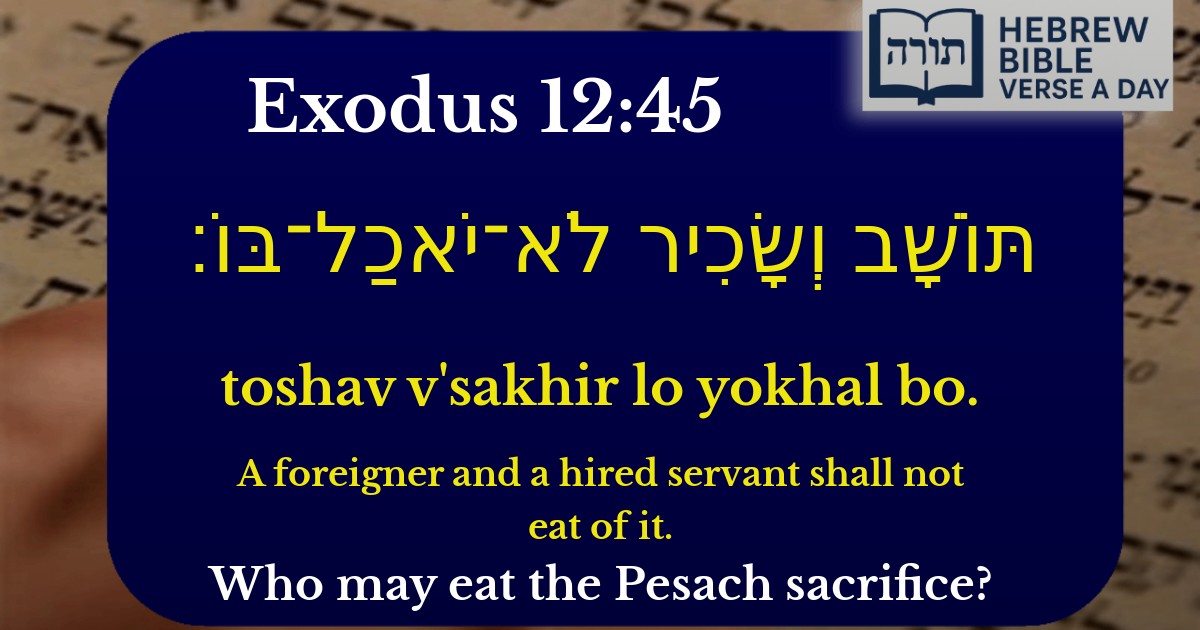Join Our Newsletter To Be Informed When New Videos Are Posted
Join the thousands of fellow Studends who rely on our videos to learn how to read the bible in Hebrew for free!
Hebrew Text
תּוֹשָׁב וְשָׂכִיר לֹא־יֹאכַל־בּוֹ׃
English Translation
A foreigner and a hired servant shall not eat of it.
Transliteration
Toshav v'sakhir lo yokhal bo.
Hebrew Leining Text
תּוֹשָׁ֥ב וְשָׂכִ֖יר לֹא־יֹ֥אכַל בּֽוֹ׃
תּוֹשָׁ֥ב וְשָׂכִ֖יר לֹא־יֹ֥אכַל בּֽוֹ׃
🎵 Listen to leining
Parasha Commentary
📚 Talmud Citations
This verse is quoted in the Talmud.
📖 Pesachim 96a
The verse is discussed in the context of who is permitted to eat the Passover sacrifice, emphasizing the exclusion of foreigners and hired servants.


Context of the Verse
The verse תּוֹשָׁב וְשָׂכִיר לֹא־יֹאכַל־בּוֹ׃ ("A foreigner and a hired servant shall not eat of it") appears in Shemot (Exodus) 12:45, within the context of the laws of the Korban Pesach (Paschal sacrifice). This prohibition is part of the broader framework of mitzvot surrounding the Pesach offering, which was central to the Exodus narrative and the subsequent observance of Pesach.
Explanation of the Terms
Reason for the Prohibition
The exclusion of a toshav and sachir from eating the Korban Pesach underscores the intimate and covenantal nature of the mitzvah. The Pesach sacrifice commemorates the redemption from Egypt and the formation of the Jewish people as a nation. As such, participation is reserved for those who are fully part of the Jewish community or household. The Ramban (Nachmanides) adds that this restriction emphasizes the idea of חבורה (a bonded group), as the Korban Pesach symbolizes unity and shared destiny.
Halachic Implications
According to the Shulchan Aruch (Orach Chaim 476:1), these restrictions apply only to the Korban Pesach itself, not to the general matzah and maror eaten at the Seder. However, the principle of exclusion teaches a broader lesson about the boundaries of communal mitzvot and the importance of intentional participation in Jewish rituals.
Midrashic Insight
The Midrash (Mechilta Bo 12) connects this verse to the idea that the Korban Pesach represents geulah (redemption), which is inherently tied to the Jewish people's unique relationship with Hashem. Just as the Exodus was a singular event for Bnei Yisrael, the Pesach offering is a singular privilege for those who embrace the totality of Jewish identity and commitment.